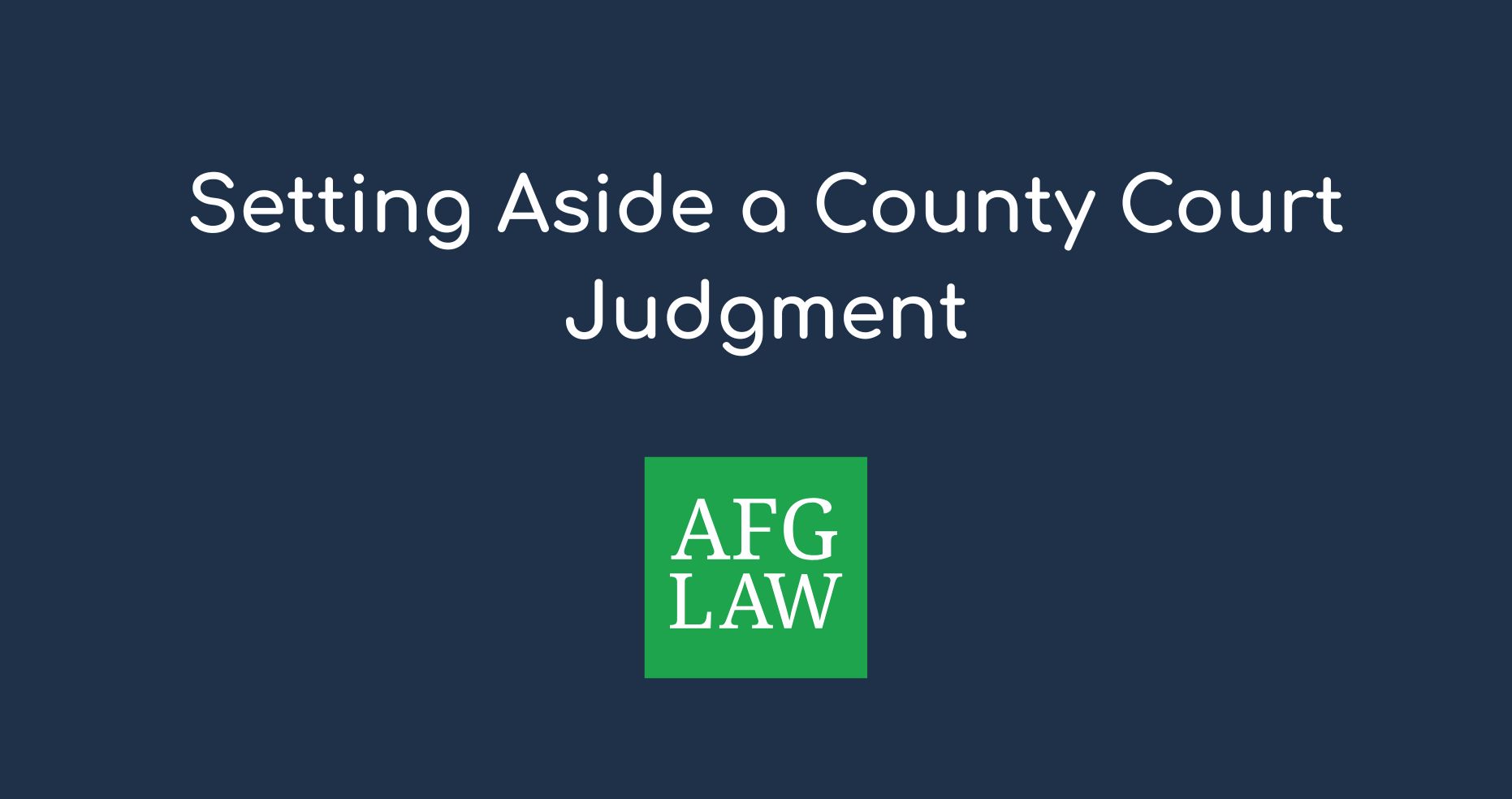Receiving a County Court Judgment (CCJ) can be a stressful and worrying experience, particularly if you were unaware of the claim or believe the judgment was issued unfairly. However, a CCJ is not always the end of the road. In many cases, it may be possible to have the judgment set aside, so you have the opportunity to respond to the claim and defend yourself properly.
Setting aside a County Court Judgment can be a complex process. The dispute resolution team at AFG Law can provide expert advice on whether we believe your CCJ could be set aside, and we can also assist in the application to set aside a CCJ.
What is a County Court Judgment?
A County Court Judgment is a formal decision made by a civil court, usually following a claim for an unpaid debt or a breach of contract. A CCJ will affect your credit rating and can have serious consequences, including difficulty obtaining credit, mortgages, or even employment.
CCJs are commonly issued when a party (the claimant) brings a claim against another (the defendant), and the court rules in the claimant's favour. This can happen after a full hearing, or without a hearing if the defendant fails to respond.
Judgments Entered in Default
One of the most common ways a CCJ is issued is through what’s called “judgment in default.” This happens when the defendant does not respond to the claim on time, either by failing to file an Acknowledgment of Service within 14 days, or by failing to submit a Defence within 28 days.
When this occurs, the claimant can request judgment without the need for a hearing. Unfortunately, many people are unaware that a claim has even been made against them until they receive notice of the judgment, often due to the claim being sent to an old address or being overlooked.
When Can a Judgment Be Set Aside?
Setting aside a County Court Judgment means asking the court to cancel it, allowing you the opportunity to defend the claim from the beginning. There are two main circumstances in which a judgment can be set aside:
Mandatory Set Aside
The court must set aside the judgment if it was entered irregularly or in error. For example:
- The judgment was entered before the time to respond had expired.
- The claim had already been paid before judgment was entered.
- You do not owe the money stated
- The claim was not properly served according to the court rules.
In these cases, once the irregularity is proven, the court has no choice—it must set the judgment aside.
Discretionary Set Aside
Even if the judgment was correctly entered, the court has discretion to set it aside if:
- You have a real prospect of successfully defending the claim; or
- There is some other good reason why the judgment should be set aside or why you should be allowed to defend the case.
Good reasons might include not receiving the claim form, serious illness, or administrative errors that prevented you from responding. The court will also look at how promptly you made your application. Acting quickly is critical and delays can significantly reduce your chances of success.
The Process of Setting Aside a County Court Judgment
To set aside a CCJ, you need to apply to the court using Form N244, along with a supporting statement explaining:
- Why you did not respond to the original claim.
- Why the judgment should be set aside.
- What your defence is, or why you should be given the chance to defend.
There is a court fee for this application, though fee remission may be available if you are on a low income or receive benefits.
What Happens Next?
Once the application is submitted, a court hearing will usually be scheduled. Both parties may be required to attend, and a judge will decide whether to set the judgment aside. If successful, the claim essentially starts again, giving you the opportunity to defend it. If unsuccessful, the judgment remains in place and enforcement action may continue.
Speak to AFG Law
Setting aside a County Court Judgment is not always straightforward, especially when dealing with court rules and tight deadlines. Whether the judgment was entered in default or under other circumstances, it is important to seek legal advice as soon as possible.
Our Dispute Resolution Team can help you assess your chances, prepare your application, and represent you in court if needed. Contact us today for clear, practical advice on your next steps.
